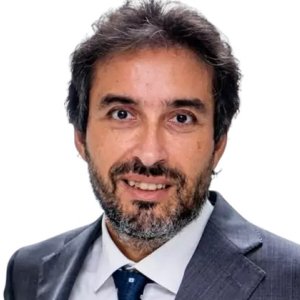A Bolder European Union: Today’s challenges in the spirit of the 1985 Milan European Council

The event uses the historical lens of the 1985 European Council meeting in Milan to look at Europe’s future.
Una riflessione sul futuro dell’Europa attraverso la lente storica del Consiglio europeo di Milano del 1985.
June 1985. In Milan, the leaders of the ten European Community member states gathered for a summit that changed the course of integration. After years of stagnation, the goal was bold: complete the Single Market by 1992. But unity was not guaranteed.
British Prime Minister Margaret Thatcher opposed any shift away from national vetoes. She defended unanimity—the rule that gave each country a final say.
Italy, holding the presidency, chose to lead. Prime Minister Bettino Craxi broke with tradition and called a vote—something unprecedented in the European Council, which usually operated by consensus. The question: Should Europe launch an intergovernmental conference to revise its treaties?
The result made history: seven countries voted yes, three countries— the UK, Denmark and Greece —voted no. For the first time, Europe moved forward without unanimity. Thatcher stood isolated. Thanks to Italy’s leadership, the path to the Single European Act was now open—the first major treaty reform since Rome, and the legal foundation of the European Union as we know it today.
Signed in 1986, the Act extended majority voting, empowered the European Parliament, and made the Single Market a reality. The Milan decision proved that Europe could overcome paralysis when Member States show political initiative and embrace institutional creativity.
Today the European Union has 27 member states. In many policy areas, majority voting allows them to act in concert. Yet, in key policy areas, like foreign and security policy or taxation, the unanimity requirement remains.
Milan 1985 reminds us that when Italy exercises leadership with clarity and ambition, it can substantially help Europe to move forward. Even in a Union nearly three times bigger than 40 years ago.
A few months before the Milan meeting, in January 1985, the newly appointed European Commission, chaired by Jacques Delors, started working to guide the European Economic Community (EEC) out of the crises of the previous decade and advance the European project.
The agenda of full internal market integration received unanimous approval from member state governments. Facilitating the free movement of goods, services, capital, and people across member state borders within the EEC was considered a solution to the region’s economic and social challenges, aiming to boost growth, competitiveness, and employment and reaffirm the legitimacy of the Community.
While the White Paper and the Single European Act provided a framework for market integration, policymakers acknowledged that achieving the Single Market and its objectives required firms to engage in activity across EEC member states.
Following the Milan Council in 1985, a key goal of the Commission was to encourage business leaders and entrepreneurs to seize Europe's opportunities and offer guidance on navigating the challenges and opportunities of the Single Market.
The primary targets for these efforts, especially during the mid and late 1980s, were big European companies, multinational corporations already doing business in multiple EEC member states and poised for further expansion in the Community.
1985 was indeed a year that made the history of the European integration process.
SPEAKERS | RELATORI
Francesco BILLARI Rector | Rettore, Bocconi University
Marta CARTABIA Full Professor of Italian and European Constitutional Law | Professoressa ordinaria di diritto costituzionale ed europeo, Bocconi University
Étienne DAVIGNON President | Presidente, Friends of Europe
Catherine DE VRIES President | Presidente, IEP@BU
Sylvie GOULARD Vice President | Vice Presidente, IEP@BU
Enrico LETTA Dean | Direttore, IE School of Politics, Economics & Global Affairs
Mario MONTI Honorary President | Presidente Onorario, IEP@BU
Teresa RIBERA Executive Vice President of the European Commission | Vice Presidente Esecutiva della Commissione europea
Giuseppe SALA Mayor of Milano | Sindaco di Milano
CHAIR | MODERA
Stefano FELTRI Communication Advisor, IEP@BU
IEP@BU does not express opinions of its own. The opinions expressed in this publication are those of the authors. Any errors or omissions are the responsibility of the authors.
-
Fileinvito11giugno-ANNUAL EVENT IEP-UPD (1).pdf (763.89 KB)
